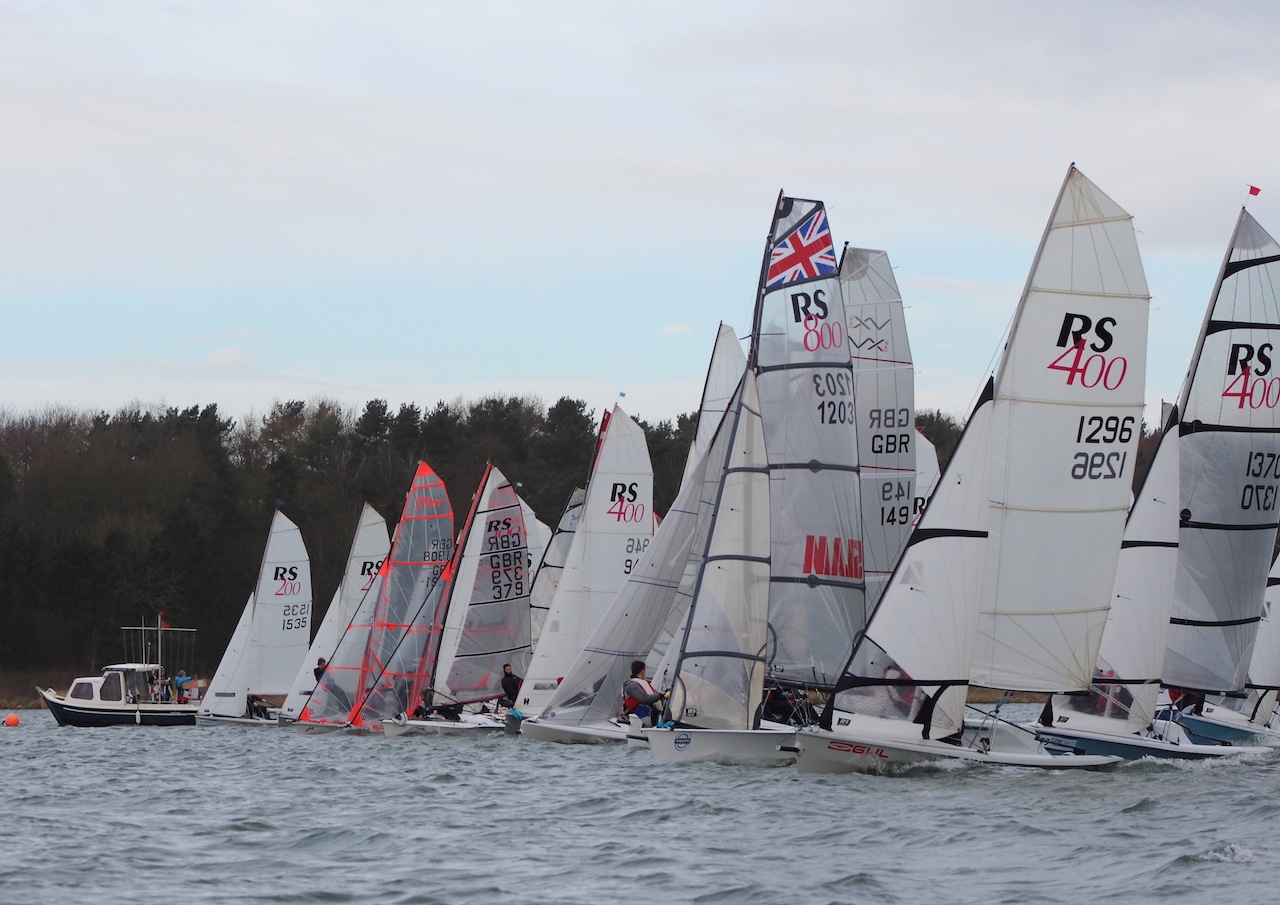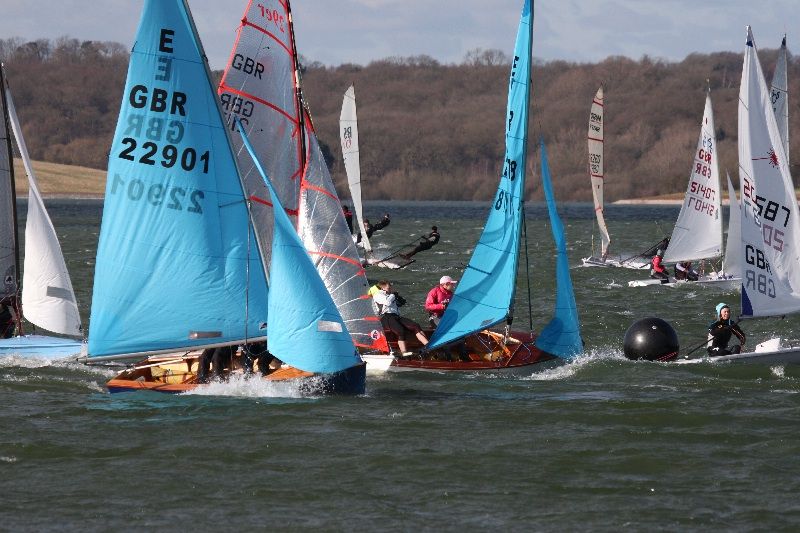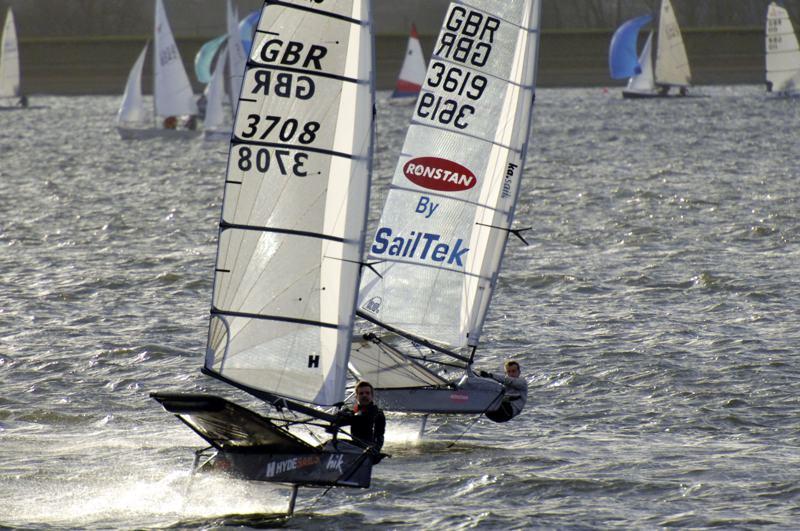Roll Tacks - February 2012
The technical boys at the RYA, Bas Edmonds and Andy Wibroe, have used the 60th anniversary of the Portsmouth Yardstick system to do a relaunch and rebranding of the handicapping system.
The RYA has always said that the PY numbers were only a starting point from which clubs should calculate their own PYs based on the results from their own club racing. But strangely that message has never broken through to the majority of clubs.
For decades, the tail has been wagging the dog. From the outset, the intention was never for the RYA numbers to be considered as being carved in tablets of stone. But that has been the perception, and heaven help the club member who dare try to suggest that his club start using its own set of numbers!
A web-based replacement for the paper-based returns has been running as a trial for the past three years, with a certain amount of success. But part of this year’s rebranding which was announced at the Volvo RYA Dinghy Show, was a massive overhaul of the website, www.pys.org.uk. There are two versions, the Pro and the Lite, and Bas foresees most clubs opting for the one-click simplicity of the Lite version. Andy Wibroe gave me a walk-through at the Show and, even for a numberphobe like me, the Lite version looks beautifully straightforward.
While the Pro version adds a lot of functionality and customisation, Bas says most clubs will be much more comfortable with the ‘click and play’ set-up of the Lite. The simpler, the better - or at least, the more likely clubs are likely to use the system. Once a club has uploaded a minimum of nine race results via one of the popular formats such as Excel or Sailwave, the website will crunch the data and almost instantaneously spit back the numbers based on the results.
To weed out any anomalies, the club results are also mixed and matched with a centrally-held RYA algorithm based on the data from all the other clubs. Of course, historic data is equally valid, so rather than waiting for the next nine races to pass, a club can upload the past few months or years of club racing data to really start fleshing out its own numbers.
Up to now, convincing clubs to use the website has been a challenge, so Bas hopes the redesign and simplification will really encourage much wider uptake. There are many more races taking place every year than are ever being fed back to the RYA, and Bas points out that the system will only be as good as the amount of data that is fed back. While the dinghy system is far from in crisis, Bas says the cruiser system, also managed by the RYA, is in the last-chance saloon. Bas is prepared to give the cruisers one more year, but unless the data starts moving from its current trickle to a steady flow, there probably will be no cruiser handicapping system.
Of course if you’ve been following the SailJuice Global Warm-Up Series, the third season of which concluded at the end of February at the Draycote Dash, you’ll understand that I don’t need much convincing of the merits of this much more dynamic form of handicapping. Since they met for the first time last year at the Dinghy Show, the Great Lakes Group - the group of wise men who have formulated the numbers for the SailJuice series - have made some brave decisions. Largely they were vindicated. From massive movements in the numbers last year - the International 14 shifted 70 points, for example - the number changes are likely to be much smaller this time round as they home in on more accurate numbers.
It was nice to get Bas’s (unsolicited, I should say) endorsement for what the Sailjuice events have been doing. “We’re promoting what you’re doing, the same principles,” he says. “We recognise that the Sailjuice series is adjusting numbers for local conditions for the boats racing in the events, which is essentially what we’re encouraging the clubs to do.” Amen to that.
I’m delighted to see that another part of the relaunch is the culling of the Primary, Secondary and Recorded Numbers, which have always been a central part of the PY system. The whole concept of Primary Numbers seemed self-defeating. For an organisation that was trying to devolve power and decision-making to the clubs, the term of Primary Number sent out exactly the wrong message. It was confirming the misplaced notion that these numbers were carved in tablets of stone, and gave clubs the perfect excuse to sit on their hands and do nothing.
I really hope the ‘do nothing’ era has now passed. Those brave club members who have accepted the poisoned chalice of adjusting handicap numbers within a sailing club have now been given the clearest mandate by the RYA to continue their work.
Congratulations to Bas and Andy for having the guts to turn the PY system into a living, breathing organism in perpetual flux. That’s what it always should have been. The tablets of stone have been broken, and they shouldn’t be put back together again.
The RYA has always said that the PY numbers were only a starting point from which clubs should calculate their own PYs based on the results from their own club racing. But strangely that message has never broken through to the majority of clubs.
For decades, the tail has been wagging the dog. From the outset, the intention was never for the RYA numbers to be considered as being carved in tablets of stone. But that has been the perception, and heaven help the club member who dare try to suggest that his club start using its own set of numbers!
A web-based replacement for the paper-based returns has been running as a trial for the past three years, with a certain amount of success. But part of this year’s rebranding which was announced at the Volvo RYA Dinghy Show, was a massive overhaul of the website, www.pys.org.uk. There are two versions, the Pro and the Lite, and Bas foresees most clubs opting for the one-click simplicity of the Lite version. Andy Wibroe gave me a walk-through at the Show and, even for a numberphobe like me, the Lite version looks beautifully straightforward.
While the Pro version adds a lot of functionality and customisation, Bas says most clubs will be much more comfortable with the ‘click and play’ set-up of the Lite. The simpler, the better - or at least, the more likely clubs are likely to use the system. Once a club has uploaded a minimum of nine race results via one of the popular formats such as Excel or Sailwave, the website will crunch the data and almost instantaneously spit back the numbers based on the results.
To weed out any anomalies, the club results are also mixed and matched with a centrally-held RYA algorithm based on the data from all the other clubs. Of course, historic data is equally valid, so rather than waiting for the next nine races to pass, a club can upload the past few months or years of club racing data to really start fleshing out its own numbers.
Up to now, convincing clubs to use the website has been a challenge, so Bas hopes the redesign and simplification will really encourage much wider uptake. There are many more races taking place every year than are ever being fed back to the RYA, and Bas points out that the system will only be as good as the amount of data that is fed back. While the dinghy system is far from in crisis, Bas says the cruiser system, also managed by the RYA, is in the last-chance saloon. Bas is prepared to give the cruisers one more year, but unless the data starts moving from its current trickle to a steady flow, there probably will be no cruiser handicapping system.
Of course if you’ve been following the SailJuice Global Warm-Up Series, the third season of which concluded at the end of February at the Draycote Dash, you’ll understand that I don’t need much convincing of the merits of this much more dynamic form of handicapping. Since they met for the first time last year at the Dinghy Show, the Great Lakes Group - the group of wise men who have formulated the numbers for the SailJuice series - have made some brave decisions. Largely they were vindicated. From massive movements in the numbers last year - the International 14 shifted 70 points, for example - the number changes are likely to be much smaller this time round as they home in on more accurate numbers.
It was nice to get Bas’s (unsolicited, I should say) endorsement for what the Sailjuice events have been doing. “We’re promoting what you’re doing, the same principles,” he says. “We recognise that the Sailjuice series is adjusting numbers for local conditions for the boats racing in the events, which is essentially what we’re encouraging the clubs to do.” Amen to that.
I’m delighted to see that another part of the relaunch is the culling of the Primary, Secondary and Recorded Numbers, which have always been a central part of the PY system. The whole concept of Primary Numbers seemed self-defeating. For an organisation that was trying to devolve power and decision-making to the clubs, the term of Primary Number sent out exactly the wrong message. It was confirming the misplaced notion that these numbers were carved in tablets of stone, and gave clubs the perfect excuse to sit on their hands and do nothing.
I really hope the ‘do nothing’ era has now passed. Those brave club members who have accepted the poisoned chalice of adjusting handicap numbers within a sailing club have now been given the clearest mandate by the RYA to continue their work.
Congratulations to Bas and Andy for having the guts to turn the PY system into a living, breathing organism in perpetual flux. That’s what it always should have been. The tablets of stone have been broken, and they shouldn’t be put back together again.
Related Articles

Podcast: Vendée Thriller, America's Cup & UK dinghy racing
Read More

Podcast: Update on the Vendée, America's Cup latest & Selden Sailjuice Winter Series. Andy Rice enjoys a lockdown chat with Mark Jardine of Sail-World.com

Entries open for GJW Direct SailJuice Winter Series 2014/15
 Now in its sixth season, this winter dinghy handicap championship will test sailing skill and sheer persistence across eight of the biggest events of the chilly season. Enter now before entries fill up...
Now in its sixth season, this winter dinghy handicap championship will test sailing skill and sheer persistence across eight of the biggest events of the chilly season. Enter now before entries fill up...
Read More

Eight events in the GJW Direct SailJuice Winter Series 2013/14
 Now in its fifth season, this Winter Dinghy Handicap Championship will test sailing skill and sheer persistence across eight of the biggest events of the chilly season....
Now in its fifth season, this Winter Dinghy Handicap Championship will test sailing skill and sheer persistence across eight of the biggest events of the chilly season....
Read More
 Now in its fifth season, this Winter Dinghy Handicap Championship will test sailing skill and sheer persistence across eight of the biggest events of the chilly season....
Now in its fifth season, this Winter Dinghy Handicap Championship will test sailing skill and sheer persistence across eight of the biggest events of the chilly season....
256 boats ready for High Wind drama at Bloody Mary
Read More
 What has been a windy start to the GJW Direct SailJuice Winter Series looks set to continue at this weekend’s Virtual Rigger 40th Bloody Mary in London. The forecast for the pursuit race classic is a moderate to strong easterly breeze, but that hasn’t stopped 256 boats entering in advance, with the prospect of many more entering on the day.
What has been a windy start to the GJW Direct SailJuice Winter Series looks set to continue at this weekend’s Virtual Rigger 40th Bloody Mary in London. The forecast for the pursuit race classic is a moderate to strong easterly breeze, but that hasn’t stopped 256 boats entering in advance, with the prospect of many more entering on the day.

Gusts from hell fail to deter 145 boats at Grafham Grand Prix
Read More
With a high-wind forecast, no one could have expected all 170 entries to follow through with the trip to today’s Grafham Grand Prix, but the 145 that got out of bed early to brave the conditions would be rewarded with a spectacular day’s handicap racing. The average wind strength might have been in the late teens to early 20s, but it was the severity of the gusts - up to 35 knots - that provided the real test. There were capsizes aplenty although, amazingly, no broken masts.
